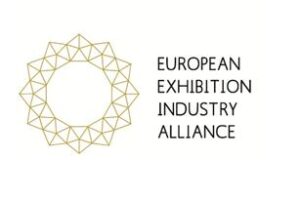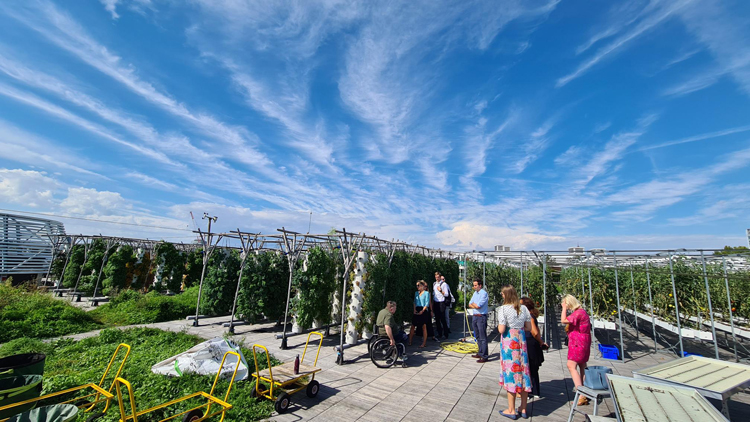The European Exhibition Industry
– welcomes European countries’ lifting internal measures and restrictions on international travel
– calls for immediate adoption of an updated framework to travel from outside the EU that is fit for purpose
– expects coordinated implementation of such a framework across all Member States
– once more encourages the Council and all Member States to specifically enable smooth business travel and to protect the safe functioning of the economy and its exhibition platforms for R&D, innovation and trade
EEIA recognises the efforts of the Commission and the recent adoption of recommendation by the Council for intra-EU travel, focussing on the status of the traveller instead of a country-based approach. As the peak of the omicron wave has been reached everywhere across Europe, it is high time to take coordinated steps for lifting the travel restrictions also for international travellers into the EU. The exhibition and business events industry in Europe dearly needs a clear planning outlook.
We see encouraging signals from many EU Member States and other countries in Europe that have started easing restrictions or lifting these entirely, such as Denmark, Greece, Italy, Norway, the United Kingdom, Sweden to drive trade and tourism.
The effect, unfortunately, is again a patchwork of rules across Europe resulting this time in a disorderly race for reopening, while collaboration and harmonised policies would be more helpful. Therefore, the European exhibition and professional events industry urges the Commission and the Council to swiftly adopt coherent common rules.
Concerning the concrete proposal for a “Council Recommendation on the temporary restriction on non-essential travel into the EU and the possible lifting of such restriction” tabled on November 25, 2021, a few changes should be introduced to reflect the current situation.
The person-based approach as a basis is key for the non-essential travel into the EU, too. All vaccinated travellers should be allowed to travel into the EU, including vaccines not listed or recognised so far by WHO or EMA. And only for these, a safeguard of an additional negative test result – ideally an antigen test – should stay in place. Italy sets the example here with providing this option already for international exhibitors and visitors to trade fairs in Italy. If a general admission of non-recognised vaccines for all travellers cannot be achieved, the Italian solution could be a model for business travel to trade fairs and other professional evens like congresses.
Additionally and as a safeguard for the European exhibition industry, the list of “Specific categories of travellers with an essential function or need” should include exhibitors, visitors and providers to exhibitions, trade fairs and professional events. With that, we can avoid another crash in our industry in the future in case of the emergence of new variants and subsequent potential constraints to travel.
The late adoption of the recommendation for intra-EU travel has entailed important negative effects on forward bookings so that numerous exhibitions and business events have been cancelled or postponed again in the meantime. The EU must not repeat this error again but provide a clear outlook, standardised, easy procedures and open borders.
Even though in most Member States trade fairs and other business events may go ahead while respecting strict sanitary provisions, travel restrictions reduce the participation of exhibitors and visitors substantially, so that in many cases international exhibitions shrink to regional events or must be postponed or cancelled entirely as companies cannot find their expected audiences and consequently decide not to participate.
Insecurity resulting from changing and confusing requirements is the worst enemy in the trade fairs and exhibitions business which has long lead times and cannot be closed and reactivated on the next day like other industries. The European institutions and the Member States must do everything to avoid any further disruption of the exhibition sector in Europe.
Nearly all leading international shows for each industry ecosystem are hosted in Europe, which represents an incredible asset and substantial market share. It is for the same reason that Europe’s exhibition and events sector is specifically vulnerable in this crisis. With preparation times of min. 4-6 months, our industry needs a clear roadmap for planning and preparing the international innovation and business platforms on time.
Trade fairs, exhibitions and business events play a vital role in the EU’s successful transition to green and digital economies and societies by providing platforms for R&D, innovation and trade that accelerate implementation of new technologies.
The European Exhibition industry calls again strongly for a streamlined approach to both intra-EU travel and travel from outside the EU to avoid further serious damage to the exhibition industry. As a global industry, we stress the need not only for European but for global coordination of criteria for risk and measures to re-establish overseas travel with the same standards.

Barbara Weizsäcker
Secretary General
European Exhibition Industry Alliance
(EEIA)
European Major Exhibitions Centre
Associations (EMECA)
Download the position paper here.
Background Information
About EEIA
The European Exhibition Industry Alliance represents nearly 400 European exhibition
organisers and venue operators in Brussels to the European institutions and stakeholders.
These trade fairs and exhibition players are organised in UFI, the Global Association of the
Exhibition Industry and the European Major Exhibition Centres Association EMECA.
For more information please visit: www.exhibition-alliance.eu www.ufi.org www.emeca.eu
We look forward to receiving any queries and your positive reply.
Please contact: barbara.weizsaecker@exhibition-alliance.eu







Leave A Comment